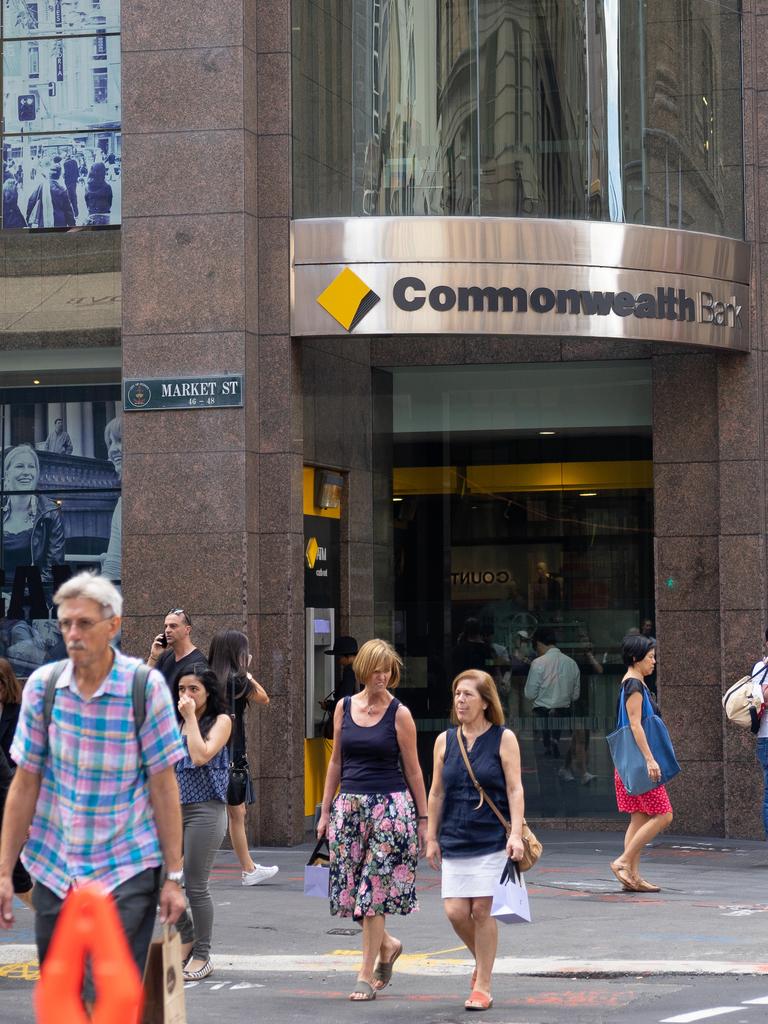What the changes to mortgage brokers mean for you and your home loan
The biggest change from the royal commission could see a ‘festival of fees’ and higher interest rates.

Mortgage brokers have been getting rich in recent years, selling ever larger home loans to millions of Aussies across the country.
Going to an actual bank to get a loan is out of date — over half of all mortgages come from mortgage brokers.
But the Banking Royal Commission is threatening massive changes. Under its recommendations brokers would no longer be able to collect “trailing commissions” — payments banks make to brokers long after the loan is approved. That would cut mortgage brokers’ pay.
Yep, brokers get paid by the banks. The Royal Commission calls that “conflicted remuneration”. It’s worth being wary of what that means for brokers’ loyalty. Few people will bite the hand that feeds them.
So what brokers really hate is the Royal Commission’s other recommendation — that customers themselves should pay the mortgage broker, rather than the bank. They expect customers to run a mile.
(The Royal Commission has tried to argue that if brokers have to charge customers then banks should have to charge a fee as well to retain competitive neutrality. That sounds like a festival of fees and seems doomed to fail.)
If either of the recommendations is put in place the mortgage broking industry could shrink. Is that a reason to celebrate, or a bad thing?
AT AUSSIE WE’LL SAVE YOU

Do mortgage brokers actually save you any money? It’s not always clear. For regular people they do some good things and some bad things.
A good thing about brokers being paid by banks is you can use them for free. A broker in a suit will come to your house and sit at your kitchen table and show you some of the different loans out there and it doesn’t cost you anything.
It’s a good first step to learn the lay of the land.
Note that I said some of the banks. Brokers don’t show you everything in the market. You get to see some different interest rates and fees the different lenders have.
The bad aspect of brokers is that because they are paid by the banks they seem to get borrowers into loans that suit the banks. And because they get a bigger commission the bigger the loan is, they can be a bit pushy.
The broker gets paid more if you borrow more so they keep suggesting you borrow more than you intended.
The incentive is set up so they want you to borrow more and brokers are successful at achieving that. The data shows that when people get their loan through a broker they tend to have higher debt-to-income levels and higher loan-to-value ratios and they spend longer paying off their loans.
IS THE INCENTIVE TO BLAME?


When you go in to JB Hi-Fi and stand in front of that big wall of TVs, the salesperson that comes up to you is on commission. They will talk up a TV that helps get them a good bonus payment. They also have “conflicted remuneration”.
But nobody suggests the lads at JB Hi-Fi should be paid by customers. The difference is that we see them as salespeople not as advisers. We know we don’t have to listen to their advice. We can walk out of there with whatever TV we want.
Whether you think the incentives are evil really depends on how much you respect mortgage brokers.
If you think they are a serious and hallowed class of adviser then you will be shocked to discover their actions are contorted and distorted by commissions. If you see brokers as travelling salespeople then nothing could be less surprising.
The head of the Royal Commission Kenneth Hayne seems to fall into the first group.
There are, I admit, two reasons to treat mortgage brokers differently from JB Hi-Fi staff in yellow lanyards. One: mortgages cost a lot more than 4K TVs so it is probably fair to have a bias toward making sure brokers behave. Two: Brokers aim to be seen as trusted advisers guiding you through the biggest financial decision of your life.
Mortgage brokers themselves might be to blame here: they don’t want to be seen as greasy salespeople. They’ve been so successful at creating the impression of trusted adviser that they have brought down the wrath of the royal commission. It noticed their serious aura comes with a salesperson’s pay structure.
THE IMPACT ON US

If we start treating mortgage brokers like serious financial advisers and demanding they only take pay from customers rather than banks, what will happen?
One theory is that punters will cut out the middleman and go straight to the bank for a loan. But while a mortgage broker has a limited range of loans on offer, a bank has even fewer. It only shows its own loans. And while the mortgage broker’s behaviour was distorted by commissions the bank’s owns salespeople could be too.
If people cut out the broker, banks will save on commissions but they will have to hire more staff to deal with loan applicants. The cost of those staff will be built into the loans.
Will there be any real saving in the end for borrowers? It seems unlikely.
Most likely, the biggest effect if people dealt directly with banks is they would end up with smaller loans. The commissions that made brokers push higher loans on people will be gone. That should be good news for some people. Although if people don’t shop around as much they might end up paying higher interest rates.
But here’s where it gets interesting — both smaller loans and higher interest rates could reduce the amount people are able to pay for a house. Think for a second about the impact of that on the housing market.
By helping people get access to big loans at low prices mortgage brokers might have been helping inflate prices.
A change to mortgage broking practices could eventually affect the housing market considerably.





